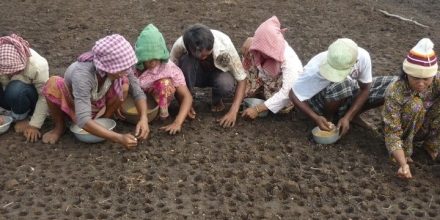Sarou Long TPR: Navigating Indigenous lands claims in Cambodia.

Event details
PhD Seminar
Date & time
Venue
Speaker
Contacts
Although the issue of Indigenous land rights has received much attention internationally, there are significant differences in how countries interpret and recognise such rights. In Cambodia, Indigenous communities are faced with diverse settings in which to negotiate formal rights to their customary lands. NGOs and donors often assist Indigenous communities to register collective land titles under the Government’s Indigenous Communal Land Title provision in its Lands Act. Indigenous communities also vie with large-scale Economic Land Concessions (ELCs) and other large and small-scale forms of land dispossession. At times, community members also sell their land and engage in market-oriented production for diverse reasons. In each context, land assemblages can vary in subtle ways, and communities accordingly respond in different ways to these their specific configuration of government institutions, policies, actors (such as NGOs, private companies, migrants), and market opportunities. This research will explore how Indigenous Peoples engage these assemblages of institutions, actors and interventions to negotiate their land claims and how these negotiations in turn shape their lives and relationships to land. I will explore this at 3 sites in Mondulkiri, Cambodia, in settings where Bunong peoples are grappling with (i) increased market engagement together with a customarily land title claim that has been lodged with NGO support (ii) a Community Forest mechanism that enables limited rights to land; and (iii) Systematic Land Registration, a new government intervention that emphasises private rather than communal title. Through these case studies, I will examine how and why different land assemblages emerge in Indigenous spaces; the strategies and tactics used by Indigenous group to negotiate their land and livelihood claims; and how these processes impact community relations with land, and with state and civil society actors.
Updated: 18 July 2024/Responsible Officer: Crawford Engagement/Page Contact: CAP Web Team











